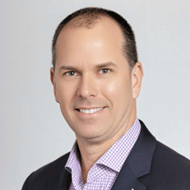Shawn Harrs is a planner. Consider the process he followed to reach his current position as Executive Vice President and CIO at the Red Lobster, the world’s largest seafood restaurant company.
Harrs learned about each of the people who would interview him and tailored his responses to the different executives, board members, and IT leaders he met. Once he joined the company in January 2023, he enacted a template he had established during a career in which he has held a number of leadership roles – assess the IT organization, present his findings to business and IT leaders, and use those discussions to develop an IT strategy for the coming year.
It is this commitment to detail that has seen his career progress in multiple CIO and senior director positions, including CIO of Ygrene Energy Fund, a venture capital-based financial services and fintech startup; senior director and head of IT and Vital Pharmaceuticals Inc.; senior director of IT at Universal Parks & Resorts; senior director of strategic IT services at Lennar, a homebuilding company; and director of customer information management Operations at The Walt Disney Co.
Harrs credits his diverse experiences and his educational background (including a bachelor’s degree in computer engineering, an MBA, and a Ph.D. in information systems) for his success as an executive, explaining that they help him understand different perspectives. In this January 2023 interview, Harrs explains how his broad background helps him prepare for the interview process, evaluate his new IT department’s readiness for success, and keep pace with the rapid advances in technology.
Mary K. Pratt: What drew you to your current CIO role?
 Shawn Harrs: The first aspect that appealed to me is the brand itself. Red Lobster is one of those seminal American brands that everyone recognizes. Also, I grew up in an island nation – I grew up in Barbados – and so I love seafood and the company’s mission of caring for the oceans and its related commitment to sustainability. So that is one aspect of what drew me to the position.
Shawn Harrs: The first aspect that appealed to me is the brand itself. Red Lobster is one of those seminal American brands that everyone recognizes. Also, I grew up in an island nation – I grew up in Barbados – and so I love seafood and the company’s mission of caring for the oceans and its related commitment to sustainability. So that is one aspect of what drew me to the position.
The second aspect that drew me to the role ties into my experience in the hospitality industry at the Walt Disney Company. I spent the most formative and the longest part of my career in hospitality. I also spent time working in other industries to gain certain professional experiences that I wanted. But I wanted to move back to hospitality.
How did you prepare for the interview process for this role?
Early- to mid-career I learned that preparing for an interview is not only about being ready to speak to the experiences listed in the job description. You also have to understand the people who will be interviewing you. You have to ask: What is it about their roles and their relationships to the position that you are applying for?
I approached the interview process with this in mind for this CIO role as well as the other two which I had, and I believe it helped me be successful.
I seek to understand each person who will interview me. For each CIO position, I met with a broad set of stakeholders: every senior leadership team member in the company including the CEO and board members. Every one of them has a different perspective as to what they are looking for from the CIO role, and I try to speak to each one’s perspective.
For example, when I am meeting with a board member, I know that that board member is not concerned about my understanding of IT; once someone is interviewing for the CIO role, the company has confidence at that point that you understand the technical aspects of IT. So when meeting with a board member, I want to demonstrate that I understand what the board is looking for from the company and how the CIO supports that.
Similarly, when I am interviewing with members of the senior leadership team, I take my CIO hat off and speak to them about how, as the CIO, I can help formulate a company strategy, help facilitate company growth and help improve competitiveness in the marketplace. I do not just talk about mobile apps and digital.
How do you ensure you are ready to discuss those points?
I look at their roles and I look to understand each of them by reading things that they have published. I look at their LinkedIn profiles and what they have posted. I look at the organizations that they are members of. I get to know them as a person as well as their role so that when I speak to them, I can understand their perspectives.
I have found that this helps me be spot on in my preparation. I believe if I did not prepare for interviews in this way, I would have been caught off guard.
What was your strategy for ensuring success in the first year at Red Lobster?
The honeymoon period in companies for new executives, and particularly at a company of this size, is very short.
So I have a repeatable template that I use when starting a new position. Within my first 30 days I do an assessment of the IT organization based on four categories. Those four categories are impacting the business, which looks at how the IT strategy is helping the company grow; the execution of that strategy; leveraging technology to be a differentiator; and running IT like a business. And within each of those four categories, I have four areas that I assess.
I then put a point of view together and I present it to my peers and to my IT leaders.
This assessment basically says how IT is supporting the organization, what is IT’s ability to execute against strategy, and what is missing. And I have found that because the assessment is grouped into those four categories, the information is very easy to digest for less technical people.
Then from that, I derive what the IT strategy and roadmap will be for the coming year.
|
Related article: Mark Sander of Azurity Pharmaceuticals on Leading in Times of Dynamic Growth and Change |
You mentioned seeking experience in different industries. Why was that important to you?
I made a very conscious decision after 18 years in the hospitality/travel/media/entertainment industry to get experience in other industries to help build my skills.
For example, as CIO at Lennar, one of the leading home builders in the U.S., I learned a lot about IT architecture, strategy, development and innovation because those were core to my role. I also learned about IT in the context of a company which was heavily focused on project management, supply chain management and manufacturing.
That experience helps me now because, when you think about what a restaurant company is, it is really a supply chain with the restaurant being a manufacturer.
Are there challenges that come with moving between industries which you had to manage?
Yes, there are some. I had to be very cognizant of what is different between industries. For example, I had to learn how the product lifecycle is different in home-building than in hospitality. I learned through books and partnerships and by seeking out mentors internally within the organizations as well as externally.
As I moved between industries, I also had to understand each company’s culture. For example, I came from Disney and Universal, which are very acronym heavy; they use acronyms for everything. But Lennar has a firm rule: Do not use acronyms for anything. That is so everyone is clear about what is being discussed. I could not even say CIO for chief information officer, because CIO could also be for chief investment officer.
Those cultural nuances matter, so it is important to really understand those.
What has your experience in multiple IT leadership roles taught you that you would pass onto other IT leaders?
I would advise most CIO candidates to look for CIO roles which report to the CEO and not to the CFO or COO or some other position, because it shows the company understands the importance of the CIO role to the senior leadership team and how it helps the company succeed.
You also pursued somewhat diverse degrees. What was your reasoning in those choices?
For me, having a bachelor’s degree in engineering from the University of Central Florida, which is very technical, an MBA from the University of Phoenix, which is business-oriented, and a Ph.D. in information systems from Nova Southeastern University is a good balance. Those educational experiences have given me a very well-rounded ability to be successful in my role.
As an example, I can get very technical. My team loves it when I can go really deep on architecture discussions and data and networks and infrastructure and cloud and all of that.
But then I can bring that business hat to my role as a senior leader and to how IT helps the business.
And the IS degree spans the two areas.
I am not saying that everyone needs to get three degrees.
However, there are a lot of professional certificate programs that I would recommend that provide C-level readiness.
The Ph.D. is an uncommon degree among executives. How has that helped you as a CIO?
I went to Nova Southeastern University and its College of Computing and Engineering because although its Ph.D. programs are academic in nature, and students can use them, as I have, to enter into academia, they are geared to help people advance in their careers.
I am a very curious person and so that was another component of why I considered a PhD program versus a certificate program.
It helps me in my career, too, because the information technology world changes so fast, and my ability to keep up with changes in technology comes from the way that students learn to learn when doing a Ph.D.
Whenever I see an obstacle that I need to overcome using research, whether it is industry research or academic research, my academic experience helps me accelerate through problem resolution much more quickly.

Written by Mary K. Pratt
Mary K. Pratt is an award-winning journalist who currently writes about enterprise IT and cybersecurity strategy and management topics. Her work has appeared in numerous publications, including CIO, CSO, Computerworld and The Wall Street Journal.



